The work of the IWC Strandings Initiative is overseen and advised by a multi-disciplinary panel. This includes veterinarians, pathologists, forensic scientists, marine biologists and educators from stranding networks, governments, academic institutions and non-governmental conservation organisations all over the world.
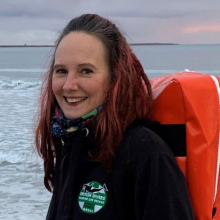
Emma Neave-Webb - Coordinator
Emma Neave-Webb joined the International Whaling Commission as Strandings Co-ordinator in March 2022...
Read more
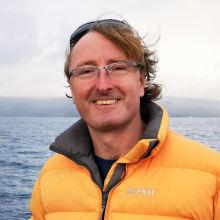
Andrew Brownlow - Chair
Andrew is a veterinarian and since 2009 has been director of the Scottish Marine Animal Stranding Scheme (SMASS).
Read more
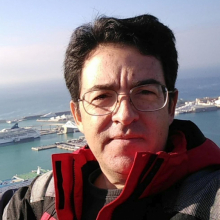
André Barreto
André is a marine biologist, with a PhD in Biological Oceanography, that has been involved with the Brazilian Stranding Network since 2004.
Read more
She has conducted cetacean and ornithology surveys in oceans all over the world for a variety of NGOs and commercial companies. As an experienced marine mammal medic and area coordinator for British Divers Marine Life Rescue since 2004, Emma has vast experience of live strandings responses throughout the UK. Based in Scotland, she is a senior volunteer with the Scottish Marine Animal Stranding Scheme (SMASS) trained in advanced sampling techniques and is also co-founder of the Orkney Marine Mammal Research Initiative where she is the Science & Data Officer.
He graduated from the R(D)SVS (2000) and has a PhD in veterinary epidemiology from the University of Edinburgh (2007). Andrew is interested in developing techniques to improve the quality and value of data collected by strandings programmes, is a Winston Churchill Memorial Trust Fellow for 2020/21 for work on optimising marine stranding surveillance networks and recently undertook a review of the aims and objectives of the IWC Strandings Initiative. Andrew has been member of the Advisory Committee of ASCOBANS for several years and currently holds a senior lectureship position at the University of Glasgow.
He has been a professor at the Universidade do Vale do Itajaí (UNIVALI) since 2000. During this time, he also has been a member of the Brazilian Stranding Network and participated in a number of different task forces from IBAMA and ICMBio (agencies attached to the Brazilian Ministry of the Environment) and the implementation of the national action plan for aquatic mammals. Since 2014 he is the principal investigator of the Santos Basin Beach Monitoring Project, which regularly monitors more than 1000km of coast, for stranded marine animals.
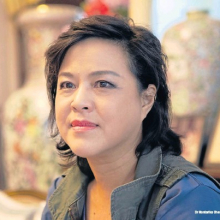
Nantarika Chansue
Nantarika has been an Associate Professor of the Aquatic Animal Medicine Unit, Department of Medicine, Faculty of Veterinary Medicine, Chulalongkorn University, Thailand, since 1989.
Read more
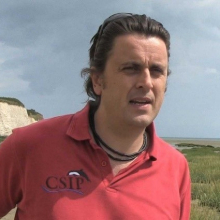
Rob Deaville
Rob is the Project Manager of the UK Cetacean Strandings Investigation Programme (CSIP) and has been in this role since 2006.
Read more
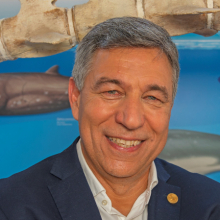
Antonio Fernandez
Antonio Fernandez is DVM, PhD, Veterinary Pathologist Specialist (ECVP Diplomate), ECZM Diplomate (Wildlife Population Health) and currently...
Read more
She holds a DVM from Chulalongkorn University, MSc in Forensic Science from The Thai Royal Police Academy, PhD in Marine Science (Immunotoxicology) from Virginia Institute of Marine Science, The College of William and Mary and LL.B from Ramkhamhaeng University. Nantarika currently serves as Director of the Veterinary Medical Aquatic Animal Research Center within the Faculty of Veterinary Science at Chulalongkorn University.
The CSIP is a collaborative research programme responsible for the investigation of UK stranded cetaceans, marine turtles and some elasmobranch species under contract to the UK government. Rob co-ordinates the delivery of CSIP contract objectives across the UK, including overall management of the programme, liaison with funders, with/between partner organisations, other stakeholders and the UK media and general public. He also co-ordinates the regional recovery and post-mortem examination of stranded animals and facilitates the underpinning science carried out by the programme. He has over 20 years experience in strandings response, recovery and investigation, both in the UK and internationally.
Antonio Fernandez is DVM, PhD, Veterinary Pathologist Specialist (ECVP Diplomate), ECZM Diplomate (Wildlife Population Health) and European Forensic Veterinary Pathology (ECVP_EFVP) and currently Vet Path Full Professor at Vet School and Director at www.iusa.eu at www.ulpgc.es. Leads the Atlantic Centre for Cetacean Research (IUSA-OIE col Centre of Marine Mammal Health), a multidisciplinary Cetacean Health and Welfare team with specialized labs as well as a stranding task force group based in the Canary Islands, involved in investigating cetacean mortalities (inc. forensic studies) at regional, national, and international level. The main conservation achievement was a sonar ban (since 2004), as well as mitigation measures of other anthropic activities in Canary Islands. Involved in different scientific national and international advisory committees. My best system to learn and teach: "Each1Teach1".
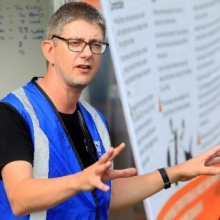
Daren Grover
Daren has been the General Manager of Project Jonah, New Zealand, since 2012. This operational role provides stranding response to marine mammal events nationally.
Read more
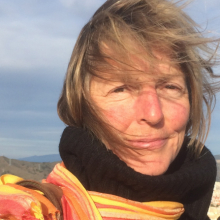
Frances Gulland
Frances is a veterinarian who has worked on the veterinary care and rehabilitation of stranded marine mammals, and research into marine mammal diseases since 1994.
Read more
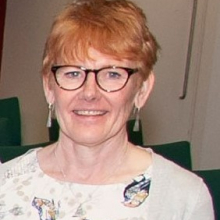
Ailsa Hall
Ailsa is the Director at Sea Mammal Research Unit, University of St Andrews, Scotland.
Read more
Daren has extensive first-hand experience at many mass strandings, and comprehensive emergency management training. His experience includes direct hands-on welfare of stranded whales, logistical and operational leadership and strategic planning for multi-day events working in a multi-agency model. He works closely with the New Zealand Government’s Department of Conservation, both in the field and providing training to their employees to provide best practice welfare and response. Daren is an experienced educator, directly training 400-500 volunteer members of the public annually, to continue growing a highly effective national stranding network. Daren was instrumental in Project Jonah being a founding member of the World Cetacean Alliance and he regularly consults with leading researchers at New Zealand Universities.
Her interests include determining the impacts of human activities on marine mammal health, and how marine mammals can in turn serve as indicators of ocean health. She received both her VetMB (1984) and a PhD in Zoology (1991) from the University of Cambridge, U.K. Frances worked at The Marine Mammal Center, USA for 25 years, and currently serves as Chair of the Marine Mammal Commission appointed by President Biden.
Her expertise lies in determining the effect that contaminant and pathogen exposure has on the risk of mortality and morbidity in marine mammals, both seals and cetaceans. Ailsa is particularly interested in determining an animal's early survival and reproductive capability, and how they interact with the species immune and endocrine systems. This has led to more fundamental questions about how the immune system may be shaped by the life history strategy of marine mammals.
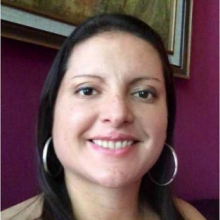
Gabriela Hernandez Mora
Gabriela is a veterinarian and researcher of the National University of Costa Rica.
Read more
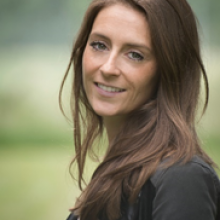
Lonneke IJsseldijk
Lonneke IJsseldijk is a biologist who works as Assistant Professor at the Faculty of Veterinary Medicine of Utrecht University in the Netherlands since 2013, where she is the project manager of the Dutch Strandings Research program.
Read more
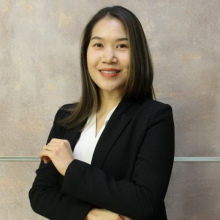
Chalatip Junchompoo
Chalatip Junchompoo is a Marine Biologist with the Eastern Marine and Coastal Resource Center of the Thai Department of Marine and Coastal Resources.
Read more
Since 2009, Gabriela has led the Bacteriology Laboratory of the National Service of Animal Health of the Ministry of Agriculture and Livestock of the Government of Costa Rica. Her main interest is the diagnosis and pathobiology of Brucella infections in marine mammals and other domestic and wild animals. She completed her MSc in Microbiology (2011) and PhD in Science (2019) with an emphasis in epidemiology of brucellosis in terrestrial and marine mammals in the University of Costa Rica. Her specialization with rescue, attention and research of stranded cetaceans began in 2004 with training at the Mote Marine Laboratory in Florida, US, and with the Taiwanese Cetacean Society in Taipei, Taiwan in 2005. Since then, she has been a member of the International Medical Association of Aquatic Animals (IAAAM), participated in multiple international conferences, and given several trainings on handling and investigation of stranded marine mammals.
Utrecht University is responsible for the investigation of stranded marine mammals in the Netherlands under contract to the Dutch government. Lonneke has been a member of the Advisory Commission of ASCOBANS for several years and jointly leading the work on standardization of post-mortem protocols throughout Europe. She holds an MSc in Environmental Biology and a PhD on porpoise health, with her research interests intersecting the fields of cetacean biology, ecology and pathology.
She received her B.Sc. in Fisheries and M.S. in Fisheries Science at Kasetsart University, Thailand. Her speciality is marine endangered species ecology and conservation. She directs the marine mammal stranding and rehabilitation program along the eastern Gulf of Thailand.
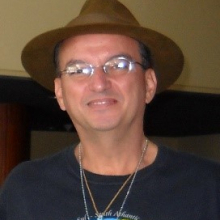
Milton Marcondes
Milton is the Research Coordinator of the Humpback Whale Institute in Brazil. He holds a DVM and has worked on the rescue of humpback whales and other cetaceans for 20 years.
Read more

David Mattila
David is Technical Advisor – Human Impact Reduction to the International Whaling Commission Secretariat and is further employed at the Center for Coastal Studies, US.
Read more
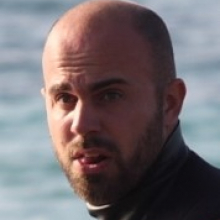
Sandro Mazzariol
Sandro is a veterinary pathologist involved in the National Stranding Network in Italy.
Read more
Milton has further been involved in the rescue and rehabilitation of manatees for two years. He currently co-ordinates the research cruises of humpback whales in the Abrolhos Bank, Brazil. Milton holds extensive experience in rescue and necropsy of large whales and dolphins along the coast of Brazil and Amazonian Basin. He has been a member of the Brazilian Stranding Network since 2000 and a member of Brazilian Delegation in Scientific Committee of IWC since 2007. Milton also participated in the South Ocean Research Partnership (SORP) expedition to Antarctic in 2016.
David has studied humpback whales since 1978, in three oceans, from Greenland to the Caribbean, and Hawai’i to American Samoa. He has been a key coordinator of two large ocean-wide, international collaborative studies of humpback whales: the SPLASH project in the North Pacific and the YONAH project in the North Atlantic. He works extensively with large whale entanglement, helping to develop rescue techniques, set up trained rescue networks and gather information that will hopefully lead to prevention. He is currently the convener of a group of experts comprised of the directors of all existing national and regional entanglement response networks. Working through the IWC, this group has developed consensus “principles and guidelines” as well as a strategy and curriculum for building international capacity to respond to entangled whales. He is the convener of the Global Whale Entanglement Response Network (GWERN), which facilitates communication and cooperation between National Networks.
Since 2010, he has co-ordinated the definition of national guidelines for the intervention and rehabilitation of cetaceans stranded alive, and, as part of Cetaceans Strandings Emergency Response Team, he has supported and supervised most of the interventions on behalf of stranded animals. He has served as a member of the International Whaling Commission’s Scientific Committee for several years, on the Scientific Committee of the Agreement on the Conservation of Cetaceans in the Black Sea, Mediterranean Sea and contiguous Atlantic area (ACCOBAMS) to follow live and mass strandings procedures, and as a consultant to the Ministry of Health and Environment. Sandro received his PhD in Veterinary Public Health (2006) and currently lectures in animal pathology and forensic at the Veterinary School of University of Padova, co-ordinating the post-graduate Masters in Conservation Medicine of Aquatic Animals. Sandro served as Chair to the Expert Panel between 2017 to 2022.
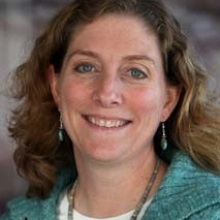
Katie Moore
As Deputy Vice President, Conservation and Animal Welfare, Katie is responsible for developing and directing IFAW’s animal rescue vision...
Read more
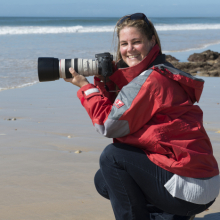
Stephanie Plön
Stephanie is an Associate Professor in the Department of Pathology at Stellenbosch University...
Read more
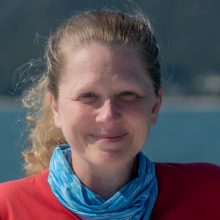
Lindsay Porter
Lindsay is a Professor at the National Sun Yat-sen University, Taiwan, and is the senior research scientist at SEAMAR, in Hong Kong.
Read more
Katie is responsible for developing and directing IFAW’s animal rescue vision and planning together with the VP of Programs and International Operations, animal rescue team, country offices and program staff. Based in the US, Katie identifies, develops and oversees the implementation of strategies to globalize animal rescue programs and establish IFAW as the premier animal rescue and relief organization worldwide. Before taking on her current role, Katie was manager of IFAW's Marine Mammal Rescue and Research team of six scientists and responders and more than 350 volunteers. Previously, Katie had led the Cape Cod Stranding Network (CCSN), since its inception in 1998 until the organization merged with IFAW in 2007. Under Katie’s leadership release rates for stranded marine mammals on Cape Cod went from 14 to over 70 percent because of the team’s constant efforts to improve health assessment techniques and supportive care, and reducing response time by using highly trained volunteers. Katie led the team in developing techniques for preventing mass strandings, resulting in a 70 percent success rate overall and a 96 percent prevention rate for Atlantic white-sided dolphins.
Stephanie is an Associate Professor in the Department of Pathology at Stellenbosch University and a Research Associate at the Bayworld Centre for Research and Education (BCRE) in Port Elizabeth, South Africa. She has been studying the cetaceans off south-eastern South Africa for the past 29 years and her expertise is in stranding response, the general ecology, including life history, trophic biology, population genetics, anatomy and the health of the local cetacean populations. In addition, she established systematic health investigations of the dolphins incidentally caught in bather protection nets off KwaZulu-Natal, South Africa. Stephanie received her BScHons in Marine Biology (1994) from Swansea University, UK, and her PhD in Zoology (2005) from Rhodes University, South Africa. She is also the stranding coordinator for the Indian Ocean Network for Cetacean Research (IndoCet) and a member of the Species Survival Commission Cetacean Specialist Group of the International Union for the Conservation of Nature (IUCN).
Lindsay has lived and worked in Asia for more than two decades and much of her work has focused on the status of Asian marine mammals. Lindsay initiated Hong Kong’s first strandings programme and is a founding member of the Asian Marine Mammal Strandings Network (AMMSN). Her role in AMMSN is to promote collaborative research on data derived from strandings and she co-chairs the AMMSN Research Committee with Prof Chansue (Thailand, also on this committee). Lindsay is currently the Vice-Chair of the Scientific Committee of the IWC and convenes the Small Cetacean sub-committee. Lindsay’s ongoing research focuses on cetaceans of concern in Hong Kong, Taiwan, China, Malaysia, Cambodia, Timo L'Este and Sri Lanka, where anthropogenic activities are having a profound impact on marine mammals.
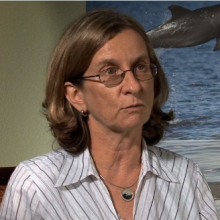
Teri Rowles
Teri is based at the National Oceanic and Atmospheric Administration (NOAA), US, where she heads the Marine Mammal Health and Stranding Response Program.
Read more
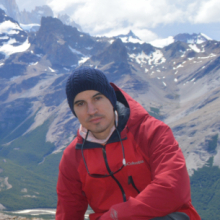
Carlos Sacristan
Carlos is a Spanish wildlife veterinarian currently working as a Postdoctoral fellow at the...
Read more
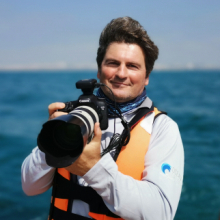
Aviad Scheinin
Aviad has served in the conservation of the Mediterranean Sea for over two decades.
Read more
Holding both DVM and PhD degrees, Teri is the co-ordinator of a national surveillance program for marine animal health in the US, and has published broadly in infectious and non-infectious diseases of marine mammals. Teri also coordinates responses to die-offs and disease outbreaks in marine organisms.
Carlos is a Spanish wildlife veterinarian currently working as a Postdoctoral fellow at the Laboratory of Wildlife Comparative Pathology - Pathology Department, at the School of Veterinary Medicine and Animal Sciences, University of São Paulo, in São Paulo, Brazil. His current research project focuses on the characterization of selected emerging viral agents potentially associated with hepatopathies in coastal, pelagic and mixed habitat cetaceans of Brazil. He also acts as one of the editors of the Wildlife Diseases Association Newsletter - Latin America Section. He previously worked as a guest researcher for the Health Surveillance Program for Cervids and Musk Ox in Oslo, Norway. Carlos received his PhD in Sciences in 2017 at the University of São Paulo, Brazil, for the project "Research and characterization of selected pathogens of cutaneous and mucocutaneous lesions in cetaceans from Brazilian coast", which was awarded as the Best PhD Thesis in Veterinary Medicine - Edition 2018, granted by the Coordination for the Improvement of Higher Education Personnel, Ministry of Education, Brazil. He received his MSc and DVM titles from the Faculty of Veterinary Sciences, Complutense University of Madrid (UCM), in Madrid, Spain. His research interests include infectious diseases in wildlife - specially emerging infectious diseases, marine mammal medicine and conservation, antimicrobial resistance, One Health and natural resources conservation.
Currently Aviad is the Head of Marine Apex Predator Lab, in the Leon H. Charney School of Marine Sciences, University of Haifa. His lab specializes in conservation, behavioural science, and long-term ecological research of coastal dolphins, sharks, rays, bluefin tuna. He is in charge of the PM lab for Apex Predators. His PhD at the University of Haifa, Israel, examined a population of bottlenose dolphins, bottom trawl catch trends and the interaction between the two, along the Mediterranean continental shelf of Israel. He has completed over 40,000 km of coastal marine mammal surveys along Israeli Mediterranean coastal waters. This research has led to the declaration of the Israeli coastal water as an IMMA (Important Marine Mammal Area) for bottlenose and common dolphins by the IUCN. Aviad is the head of the Dolphin and Sea Center, the educational center of Delphis NGO, Israel. He was a member of the ACCOBAMS scientific committee and a member of the executive board of the ECS.
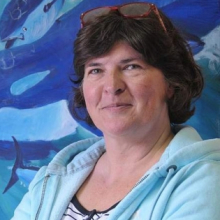
Ursula Siebert
Ursula studied veterinary medicine in Germany and France, conducted her PhD in the field of ecotoxicology and her rehabilitation in zoology.
Read more
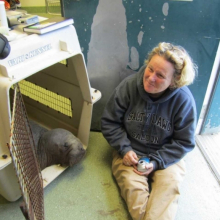
Raphaela Stimmelmayr
Raphaela is a veterinary surgeon who holds a MSc, PhD and is the wildlife veterinarian and research biologist for the North Slope Borough's Department of Wildlife Management.
Read more
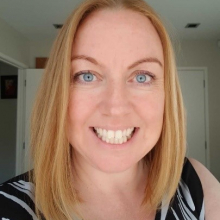
Karen Stockin
Karen is Associate Professor of Marine Biology at Massey University, New Zealand...
Read more
She is currently Professor at the University of Veterinary Medicine, Hannover, Germany, and has an Honorary Professorship from the University of Aarhus, Denmark. She is certified as specialist in Wildlife Biology and Medicine and is currently Diplomate of the Wildlife European College of Zoo Medicine for Wildlife Population Health and Diplomate of European College of Aquatic Animal Health. Ursula is currently director of the Institute of Terrestrial and Aquatic Wildlife Research at the University of Veterinary Medicine Hannover, Germany. Within the discipline of wildlife biology, she focuses within her work on basic research, applied research and monitoring. Research is concentrated on diseases in wild animals and diseases transmittable between humans and animals, so-called zoonoses. Ursula has conducted several thousand necropsies on marine mammals worldwide. She has served as expert for the German Government in a large number of different agreements and committees.
Raphaela also leads the Marine Mammal Health Research Program and has worked on wildlife health issues in the Arctic, subarctic, and subtropics. Her overarching research focus has been on marine and terrestrial ecosystem health and wildlife disease ecology with an emphasis on the “One Medicine/Health” approach. She holds a Research Scientist position with the Institute of Arctic Biology, University of Alaska Fairbanks, USA.
Karen is a Professor of Marine Biology at Massey University, New Zealand, where she is Research Director of the Cetacean Ecology Research Group and Associate Investigator of the New Zealand Animal Welfare Science and Bioethics Centre. Her research interests intersect the fields of marine mammal biology, ecology and behaviour. As a Royal Society of New Zealand Rutherford Discovery Fellow (2019-2024), her current research investigates emerging contaminants (including microplastics, PFAS) and the conservation-welfare nexus at whale mass strandings. Karen holds a PhD in Zoology (Massey University, New Zealand 2008), MSc in Marine & Fisheries Science (University of Aberdeen, Scotland 1999) and BSc Hons in Marine Biology (Plymouth University, England 1998).
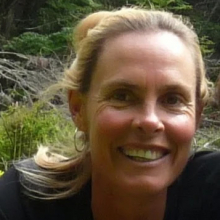
Marcela Uhart
Marcela is a wildlife veterinarian from Argentina, with 25 years’ experience in marine mammal and seabird health in Latin America.
Read more
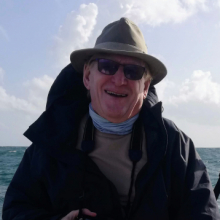
MICHEL VELY
Michel Vely is a French veterinarian from Toulouse National Veterinary School (1981) and specialized at Pasteur Institute of Paris in Bacteriology and Virology (1986).
Read more
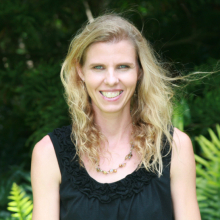
Kristi West
Kristi is an Associate Researcher at the University of Hawaii, a Professor in Residence at Chaminade University and a Research Associate at the Smithsonian Institution.
Read more
She established the Southern Right Whale Health Monitoring Program at Peninsula Valdes, Argentina in 2003. Her research interests include infectious and parasitic diseases, zoonotic pathogens, pollutants including plastics, biotoxins, antimicrobial resistance, physiology, ecology and health risks from human interactions. Marcela is Director of the Latin America Program at the University of California Davis School of Veterinary Medicine, Coordinator for the IUCN Wildlife Health Specialist Group in South America and a member of the World Animal Health Organization’s Working Group on Wildlife.
His Vet Doctor thesis title was "The marine mammals and their bacterial and viral diseases" He spent all his career in Africa (Ethiopia, Mauritania, Madagascar, Comoros, Djibouti, Seychelles, Mauritius) and in the French overseas territories (Mayotte, French Guiana and Saint-Martin and Saint-Barth’s). He is currently Chief Veterinary Officer of Saint-Martin and Saint-Barth’s and a member of the CARIBVET Network since mars 2017. Michel is also a founding member of the Indian Ocean Cetacean Research Network (INDOCET). Michel has been Chairman of the French NGO MEGAPTERA (www.megaptera.org) since 1998 and he has been studying the biology of marine mammals and whale sharks, in captivity and in the wild since 1979. He is a French delegate of the International Whaling Commission Scientific Committee (IWC/SC) since 2008.
She has directed necropsy and cause of death investigations for stranded cetaceans in the Pacific Islands region since 2006. In addition to coordinating cetacean stranding response and necropsy in the Hawaiian Islands, Kristi continues to work closely with stranding response partners throughout the greater Pacific to build capacity for increased sampling and diagnostics. Kristi’s work broadly aims to identify and evaluate threats that cetaceans face, and she is particularly interested in understanding infectious and non-infectious disease processes as well as the impact of anthropogenic activities on Pacific Island cetaceans.
Latest Tweets

International Whaling Commission
Suite 2, First Floor, Victory House, Vision Park, Histon, Cambridge, CB24 9ZR
+44 (0) 1223 233 971
secretariat@iwc.int
Subscribe to the IWC Mailing List